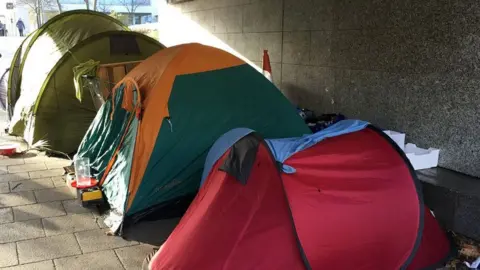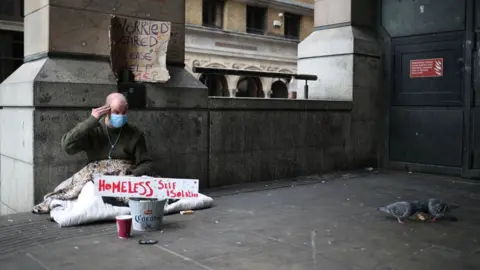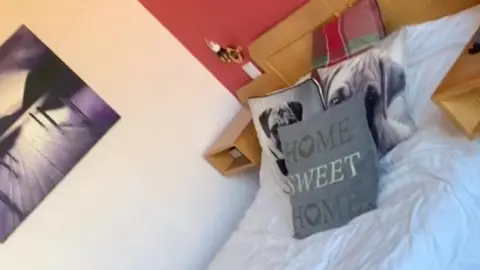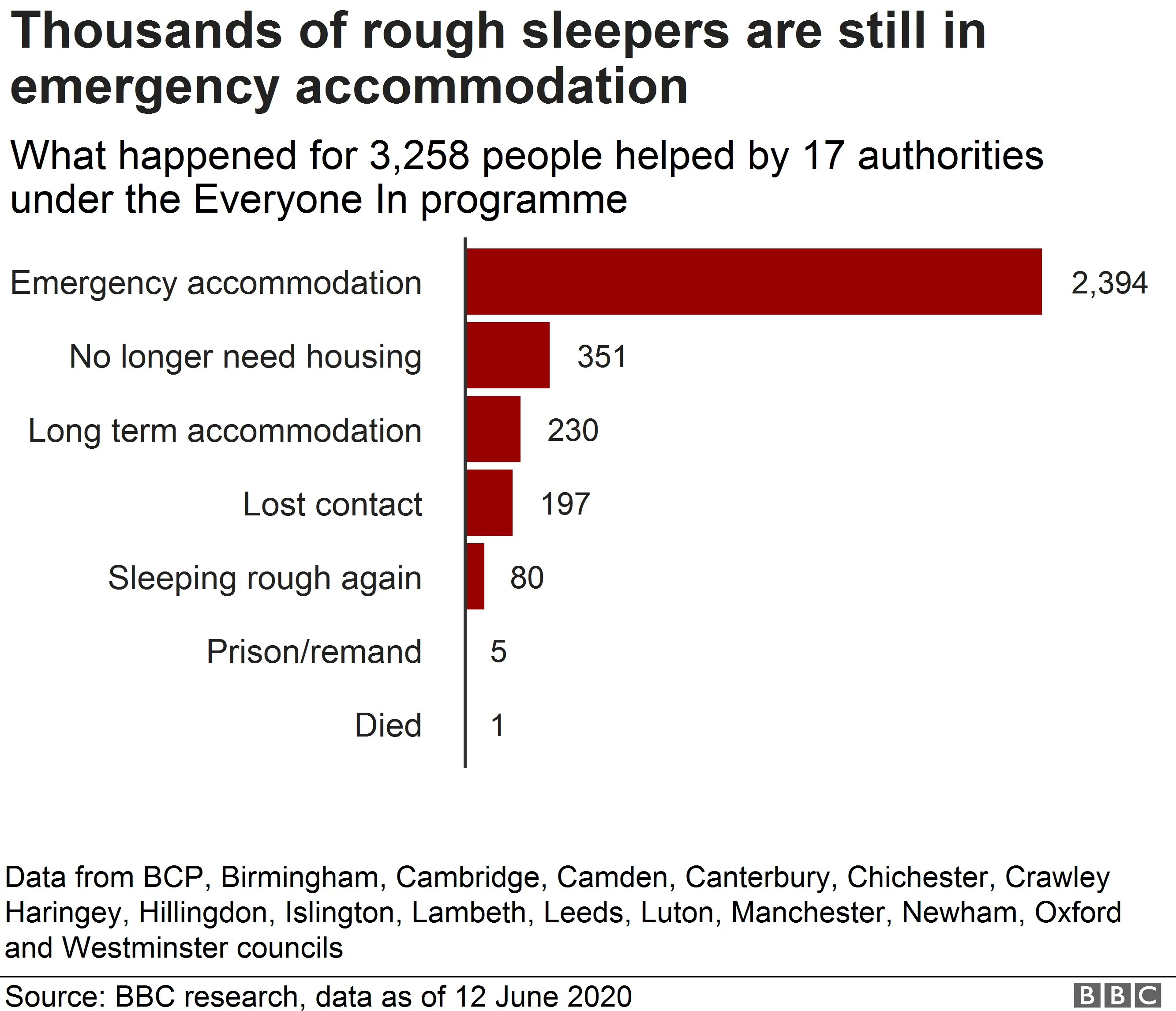Coronavirus: Thousands of homeless still in temporary shelter
 BBC
BBCThousands of homeless people put up in places like hotels and B&Bs due to coronavirus are still in emergency accommodation.
Charities say there are just weeks to stop them returning to the streets as premises prepare to reopen.
BBC research found three quarters of homeless people in 17 areas are still in temporary accommodation with some already sleeping rough again.
The government said councils must continue to provide safe accommodation.
The BBC's The Next Episode podcast contacted the 25 councils with the highest rough sleeper counts last autumn.
 Reuters
ReutersSeventeen of those councils provided comparable data and between them they housed 3,258 homeless people under the Everyone In scheme.
Most of the homeless people were still in that temporary accommodation as of last week but 80 were already back on the streets.
With hotels set to reopen to the public from 4 July, charities say a plan is needed to move thousands of homeless people into alternative accommodation.
'My life is stressing over where I'm going to be'
Emily, 21, was moved into a hotel in Worthing, West Sussex.
"There's roughly 70 people here. It's not a bad little hotel. But when you're there every single day it's quite annoying - you can't do your washing, you can't cook your own food."
 Emily
EmilyShe told The Next Episode residents were worried about how long they would have before hotel owners wanted the rooms back - and said politicians needed to appreciate the toll of that uncertainty.
"It takes over my life. That's literally all my life is - stressing over where I'm going to be."
 Emily
Emily'First stable home I've had'
Darren - not his real name - was given a room in a hotel in the south of England - and says that gave him the space to sort his life out.
The 19-year-old said: "It's probably the first stable home I'd ever had. My mind completely cleared up, knowing I had a stable place for the next few weeks. I started applying for jobs."
Darren got a job at one of the NHS Nightingale hospitals - which provided accommodation to employees.
But when the hospitals were mothballed he lost the accommodation and his former council said it no longer had a duty to house him.
He has since found a flat and is applying for other work.
"If you give people a place to stay, they have a much stronger backing to work from," he said.

Where have rough sleepers gone?
In March, councils were told to move homeless people off the streets and out of communal shelters as the lockdown began.
The government says about 14,500 people were found emergency accommodation across England.
Data from 17 councils revealed 80 of the 3,258 people they brought in off the streets were already sleeping rough again while 230 had already been found a permanent home.

The councils - who recorded some of the largest figures in the government's annual rough sleeping snapshot - said hundreds more no longer needed housing from them, with some now getting help from different local authorities, or moving in with friends or family.
At least one rough sleeper has died, according to Manchester City Council.
Everyone helped by Westminster, Islington, Newham and Lambeth councils was still in their temporary accommodation as of last week.

'The pressure is now on'
Petra Salva, the director of rough sleeping services at homelessness charity St Mungos said it had been a "gargantuan effort" to get people off the streets.
She said "the pressure is now on" to find alternative accommodation as hotel owners start to want their rooms back.
"This is super urgent," she said. "Conversations are starting to happen around exit planning - we've got weeks, at best some months to find alternative solutions."
Homelessness charity Crisis warned of a cliff-edge at the end of June when many council contracts with hotels come to and end.
And Balbir Chatrik, director of policy for youth homelessness charity Centrepoint, told the BBC the government could not leave the task to councils alone.
"Ministers cannot wash their hands of this when they know that most councils lack the funds needed to continue this programme without the continued support from central government."
The Local Government Association said councils needed "clarity" about what further help they would get.
'Staggering efforts'
Councils were told to submit plans for what happens next to the thousands of rough sleepers they are currently housing.
Dame Louise Casey's rough sleeping taskforce will consider these plans and decide whether to recommend further action.
A government spokesperson praised councils' "staggering efforts" so far.
They said the taskforce "aims to ensure as many people as possible who have been brought in off the streets in this pandemic do not return to sleeping rough."
"We've been clear councils must continue to provide safe accommodation to vulnerable rough sleepers and support those moving on from emergency accommodation," the spokesperson said.
Listen to the full report on The Next Episode, on BBC Sounds.
